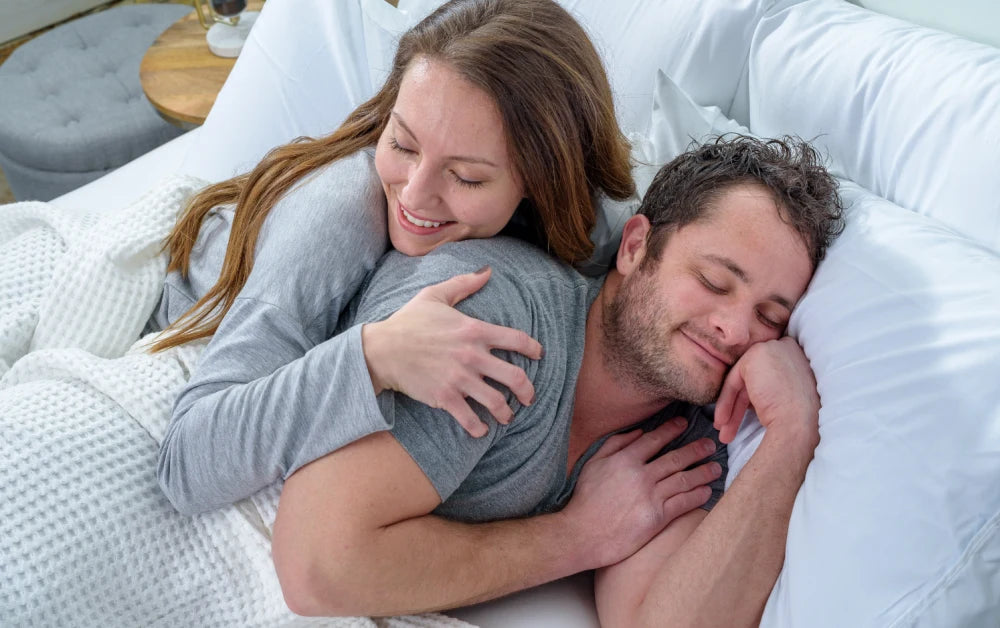Sleep may be the most important part of the day, and is a key ingredient to overall health.
Sleeping well may make you need less energy throughout the day, so you eat less. A person who sleeps well may also be more alert and attentive - without the need for coffee or other stimulants. A person who sleeps poorly may also be at an increased risk for a number of health issues.
Unfortunately for many people, getting better sleep can be a mystery.
Luckily, we know more about the science of sleep than ever before. There are a number of tips that may help some users find the shut-eye they need. In many cases the tips to getting a good night’s sleep are as plain as day.
Sleep in darkness
The first tip may seem like a given, but it is surprising the ways light can leak into a room. The body has a built-in clock that tells it what time it is. This is called the circadian clock.
Normally, our circadian rhythms follow the natural rhythms of the day. So in general we feel most energized when the day is brightest, around mid-day, and less energetic after the sun goes down.
As we follow the pattern, it is important to sleep in darkness, to match the dark we would normally experience in nature. Unfortunately, what many people think is dark may not be dark enough.
Light, even small lights such as a standby light form the television or alarm clock, may activate the brain, tricking it into thinking the sun is out and keeping it more alert or preventing it from getting to deeper levels of sleep.
People living in the city or near other outdoor lights may also have their bedrooms brightened from the outside. Again, this may be preventing them from getting a truly restful night of sleep.
Ideally, no lights should be on in the room, and the person should not be able to see the foot of the bed due to darkness.
Reduce blue light exposure in the evening
Following the talk about the circadian rhythms, one of the things science has pinned down is how blue light affects the brain. The brain sees light, blue light in particular, as a sign that it is day. This makes sense, as the sun emits a lot of this blue light during the day, and the sky reflects blue light back to us during the day as well.
In the evening this blue light naturally disappears. This sends signals to the brain that it is time to wind down and get ready for bed, which makes the body more tired.
However, our modern lifestyle puts us in front of screens, such as our televisions, computers, and smartphones for hours in the evening and night. These are all major sources of blue light. For many people, the exposure to blue light in the evening and night may be the greatest factor preventing them from sleeping well.
This one is simple enough to fix. Have a set time each evening where you stop using screens. Most people stop using them one or two hours before bed. Use this time to wind down, read a book, or drink calming tea.
Increase blue light in the day
On the other hand, increasing blue light during the day may be just as beneficial to our sleep. As most people spend a lot more time inside in the modern era, we do not experience the same levels of blue light as we used to when we spent more time outside. This may contribute to feeling sluggish or having trouble concentrating throughout the day. If it becomes a pattern, it may even disrupt a person’s sleep.
Keeping bright, blue lights on in the home or office during the day may help stimulate the brain. Of course, spending more time outside in the sunlight may be best.
Avoid long naps
While a quick nap in the afternoon may help a person may feel more refreshed and ready to go on with their day, sleeping too long or too often throughout the day may actually make sleep quality worse.
Many studies confirm that a nap of 30 minutes or less is ideal. A 20 to 30 minute nap can help you feel refreshed, enhance your brain function, and serve as a reset; empowering you through the rest of your day. Any longer than that, however, and you may actually wake up feeling tired.
Making a regular habit of daytime napping or napping for long periods throughout the day may actually disturb the quality of your sleep. It may take a few days to get used to, but avoiding long naps may be the right step towards getting a full night’s rest.
Avoid caffeine late in the day
Caffeine is one of the most common drugs in the world. Many people consume caffeine in the form of coffee, tea, chocolate, or other energy products. While caffeine has some helpful benefits for the body, such as increasing your mood and alertness, having caffeine later in the day may keep the mind stimulated, making it harder to fall asleep.
Caffeine stays active in the brain for up to 8 hours. During this time, even if the person falls asleep easily, the caffeine may keep their brain from reaching the deeper states of sleep necessary to feel rested in the morning.
Avoiding caffeine in the evening may help the brain relax as the day goes on and contribute to better sleep.
If you are a person who enjoys coffee in the evening out of habit, you may get the same feeling from decaf coffee or a chicory drink.
Set a sleep schedule
This is a very simple tip that may help most people. The body’s internal clock responds well to patterns. One of the easiest ways to set a pattern for it is to wake up at the same time each and every day and allow your body to get used to it.
For instance, if you have to get up at 7 on work days, set your alarm every day for 7. This allows the body to tell you when it is tired, as it knows what time you will have to get up. It may seem like a mild inconvenience, but in the long run it could make for better sleep.
Other possible tips
While the few tips mentioned above may be the most important to get your body back in it’s natural rhythms, a few other tips may help certain people as well.
Check your hardware – Sleeping on a poor mattress or pillow may contribute to poor sleep. Ensure you have the best mattress and pillow for your sleep type.
Try melatonin – Melatonin is a sleep hormone that tells the body it is time for bed. A melatonin supplement may help some people get tired, especially people who struggle to fall asleep at night.
Avoid alcohol – while alcohol is a mild relaxant, it may also contribute to other sleep issues such as sleep apnea or disrupted sleep patterns. Avoid it if you are having trouble sleeping.
Herbs and supplements – Some herbs and supplements may help some people get better sleep. These include:
- Chamomile
- Valerian root
- Lavender
- Magnesium
- L-Theanine
Final thought
These tips may help you get better sleep or break out of unhealthy sleep patterns. With that said, anyone who is concerned about their sleep patterns or overall health should see a doctor

